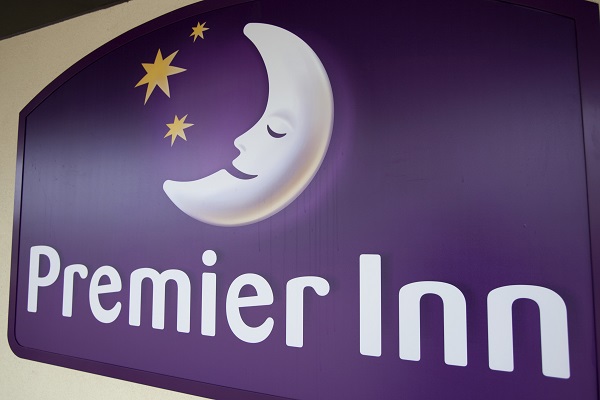Ambitious Whitbread spells out five-year plan
The hotel owner used its half-year results to explain it's lofty targets and how it plans to get there. ii's head of markets also talks through the numbers.
16th October 2024 08:29

Whitbread (LSE:WTB) has outlined a new and ambitious strategy, which seeks finally to draw a line under any lingering pandemic repercussions.
The sale of its jewel in the crown, Costa Coffee to Coca-Cola in 2019 for £3.9 billion, somewhat left Whitbread flying on one engine, largely reliant on its Premier Inn business. The situation was then compounded by the onset of the pandemic, and more recently the rise in interest rates and inflation. Indeed, the shares remain down by 16% over the last five years although despite these major challenges there are certainly signs that the group is on the road to recovery.
- Invest with ii: What is a Managed ISA? | Open a Managed ISA | Transfer an ISA
The irony of the ravages wrought by the pandemic is that it provided Whitbread with some major opportunities given a structural shift in the sector. Many independent hotels went to the wall as a result and there was next to no new hotel construction activity, which opened up the market to the larger operators. This contributed to Premier Inn becoming the largest hotel chain in the UK, with a 12% share of total hotel room supply. In relative terms, Premier Inn has consistently outperformed the market since the end of the pandemic.
At the same time, the group has been expanding into the next obvious driver of growth, namely the German market, where it hopes to replicate the success of the UK Premier Inn brand. After some years of investment and incremental brand awareness, the German unit is expected to break even in the second half of the year, propelled lately by a 22% rise in total accommodation sales in this reporting period.
Taken together, Whitbread has announced an ambitious five-year plan, which is targeting adjusted pre-tax profit of at least £300 million and some £2 billion available for shareholder distributions by 2030. It also aims to increase its hotel room estate to 98,000 by that time, en route to its long-term target of 125,000.
Within the plan, the German operation is expected to be making a significant contribution, with adjusted pre-tax profit of £70 million emanating from what should then be 20,000 rooms. In addition, the group is optimising its Food and Beverage offer, which includes converting restaurants as well as integrating the restaurant offer where possible into existing hotels, away from the more traditional standalone sites.
- Sign up to our free newsletter for investment ideas, latest news and award-winning analysis
- UK bank stocks: Q3 results preview
- ii investment performance review: Q3 2024
In the meantime, the group has also been served a reminder that the path ahead will be a difficult one to navigate. More recently, lukewarm consumer confidence and an uncertain economic outlook have contributed to a soft trading backdrop, while poor weather and ongoing reinvestment into the business have also left their mark.
For the 26 weeks to 29 August, flat revenues of £1.57 billion were accompanied by a fall of 13% in adjusted pre-tax profit to £340 million, or on a reported basis a drop of 22% to £309 million. The Return on Capital Employed dipped from 12.6% to 11.9%, while the net cash balance of £67 million became a net debt position of £370 million.
Current trading has shown some improvement in sales trends after a weak start to September, and occupancy remains strong at the current time. The Food and Beverage unit is suffering either from an exit from some of the existing sites or disruption caused by the new conversions, and sales are running some 14% shy of the corresponding period last year. Some of this slack has been picked up by other parts of the business, such as the accelerating growth in Germany, as well as a cost reduction programme which aims to deliver £60 million of savings in this year as a whole as part of a three-year target of £150 million.
- 10 hottest ISA shares, funds and trusts
- Stockwatch: is it now 'darkest before dawn' for this sector?
Despite the undeniably testing backdrop, the group’s lofty ambitions are being matched by management confidence in the medium-term outlook. A further share buyback programme of £100 million and an increase to the dividend which takes the projected yield to 3.2% are statements of intent.
The shares moved higher in early trade as investors assessed the scale of the group’s ambitions, reducing some of the weakness over the past year whereby the price had fallen by 6%, as compared to a gain of 8% for the wider FTSE100. The market consensus of the shares as a 'buy' seems likely to persist, as Whitbread drives toward the next phase of its development.
These articles are provided for information purposes only. Occasionally, an opinion about whether to buy or sell a specific investment may be provided by third parties. The content is not intended to be a personal recommendation to buy or sell any financial instrument or product, or to adopt any investment strategy as it is not provided based on an assessment of your investing knowledge and experience, your financial situation or your investment objectives. The value of your investments, and the income derived from them, may go down as well as up. You may not get back all the money that you invest. The investments referred to in this article may not be suitable for all investors, and if in doubt, an investor should seek advice from a qualified investment adviser.
Full performance can be found on the company or index summary page on the interactive investor website. Simply click on the company's or index name highlighted in the article.
Editor's Picks